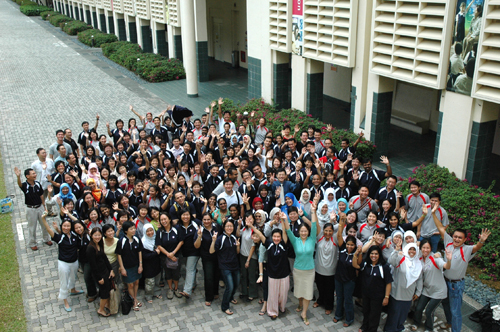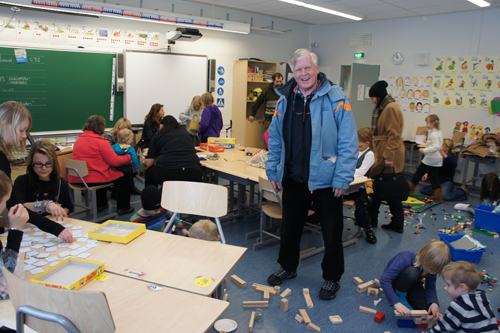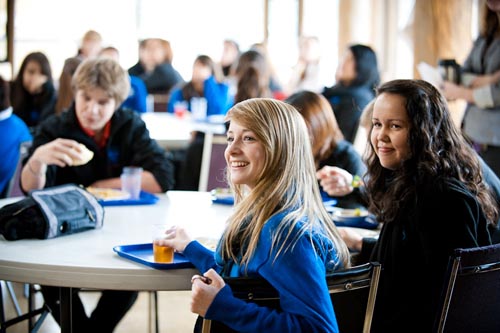“Das neue China ist stark machen für eine gute,” proclaimed my great great Uncle George E. Morrison (New York Times feature article, 1912) who advised the Chinese leadership during the formation of the first Republic. DR. Morrison’s speeches about the vision of his Chinese friends at the turn of the 20th century remind me of Henry Kissinger’s remarks about China’s determination to continue its remarkable economic growth in his new book, On China. President Obama recently described China as a “stark, prosperous and successful member of the community of nations.” And educators will not forget Education Secretary Arne Duncan referring to Shanghai ranking #1 on PISA, the global standardized academic test, als ein “wake-up call” for education reform in the American system.
Mittlerweile, in China, the national newspapers published the comments of a Chinese mother passionately complaining about the long hours her child was spending on school work. Is this a nation of Tiger Mom test takers who only memorize what teachers and textbooks say, or is this also a nation of creators and innovators?
Ich hatte die große Ehre, die Befragung der hoch angesehenen Professor Zhang Minxuan, Generaldirektor des Zentrums für Internationale Bildungsstudien, Bildungsministerium, China, und der nationalen Projektleiter PISA.
Was für ein Bildungssystem wird China zu ermöglichen, die menschlichen Fähigkeiten, um im globalen Wettbewerb?
Ich glaube nicht, es ist eine Antwort auf Ihre Frage. Verschiedene Länder verlangen verschiedene Systeme. Eine Art von Bildungssystem kann nicht alle Menschen Fähigkeiten abdecken. In der Natur, Wir haben verschiedene Arten von Bäumen und Blumen. Auf die gleiche Weise, there are many kinds of education systems which will be workable for a particular culture, economic situation and social history. In China, we have several types of sub-systems. Beispielsweise, in Shanghai we have a system suitable for a metropolitan area. I have worked in our rural areas, zu. We have systems that are more suitable for them. Natürlich, in our overall education system, there are common characteristics.
From my personal experience of working in China, an education system should pay attention to all the students. Als Nation, wir nicht auf einige wenige Eliten angewiesen. Alle Menschen in einer Gesellschaft müssen spüren, dass sie helfen, dass die Gesellschaft. Regierung muss dafür sorgen, alle Menschen haben eine gute Ausbildung. Dies ist für das chinesische Volk sehr wichtig. Meine Erfahrungen in anderen Ländern, auch in armen Ländern, ist, dass Sie gute Schulen finden, aber nur für Eliten.
Glauben Sie, dass chinesische standardisierten Tests messen die breite Palette von Ihren Schülern’ Fähigkeiten?
Wir haben eine lange Geschichte der Tests in China. Im alten China und vielleicht sogar jetzt, we still have the tradition that we select the best students from testing. But testing is only one way. It comes at the end of education. If we want to build a good system, we cannot only rely on testing at the end of learning. Testing implies that the student has finished the educational system. The most important thing is not just to see the testing results, but to pay close attention to the educational process. The process of education is much more important than the testing.
Are there other capabilities that we should also be evaluating?
Testing is an oversimplified way to check educational results. Education is not just about knowledge. It is also the process of socialization of the individual. There are other important elements such as social responsibility, personal potential in arts and the fine arts, how a student handles himself in relationships with other people, how students handle their work. Those kinds of skills and capacities are very important, manchmal sogar noch wichtiger als Subjekt Test.
Aus einer größeren Perspektive, hat Chinas Definition pädagogische Spitzenleistungen zu berücksichtigen, die Lebensqualität des Einzelnen und der Gesellschaft?
In der chinesischen Kultur, Wir haben zwei Arten von Perspektiven auf pädagogische Spitzenleistungen. Der eine ist, dass die Studierenden mehr Wissen und Fähigkeiten zu erlernen. In China, weil unser Erbe und unsere Geschichte, Wir haben immer gesagt, bevor Sie glücklich sein müssen erzogen werden. Lernen ist die Brücke zu dem, was Sie in Ihre Zukunft tun wollen. Wenn unser Volk hatte keine Bauer, keine Führer, keine Leute, die das Land zu dienen, oder dienen der Familie, Wie können wir eine große Zukunft? Aber jetzt versuchen wir auch die Aufmerksamkeit auf das Glück in den Lernprozess zu zahlen. Wir wollen unseren Kindern nicht helfen, nur um für die Zukunft lernen, sondern auch den Prozess des Lernens genießen. Das ist unsere Herausforderung, aber wir werden versuchen schwer, den Weg zu finden.
Da der Wettbewerb in Bildung beschleunigt, Wir sind zu riskieren das emotionale Wohlbefinden unserer Schüler in Anbetracht der wachsenden akademischen Druck?
After the PISA results, we wondered if we could lessen the learning burden of the students. In China, historically we have encouraged students to work hard and even struggle in their learning, but we do not want students to suffer because of education. We talk about not trying to learn all knowledge today. In the future there will be more knowledge. So the most important thing is not our students’ learning achievements today, but is to cultivate our students to have active learning attitudes. High school should not be the most important time. Natürlich, they are important years, but it is more important to keep students’ interest in learning so that they continue to learn by themselves.
World Wisdom from China
Different kinds of education systems are needed for different cultures, economic situations and social history, among countries and within countries. Education systems should pay attention to all the students, not just the elites. A nation cannot just rely on its elite; alle Menschen in einer Gesellschaft müssen das Gefühl haben, beitragen.
Der Prozess der Bildung ist viel wichtiger als der Endpunkt Tests. Eine solche Prüfung setzt voraus, dass Schüler lernen beendet. Educational Excellence geht es um Kenntnisse und Fähigkeiten, aber es geht auch um die Sozialisation des Individuums, zu kultivieren, um Studenten aktiv Lerninteressen für den Rest ihres Lebens und über starke kulturelle Förderung von Bildung haben.
In Die globale Suche nach Bildung, beitreten C.M. Rubin und weltweit renommierten Vordenkern wie Sir Michael Barber (Vereinigtes Königreich), DR. Leon Botstein (US), DR. Linda Hammond-Liebling (US), DR. Madhav Chavan (Indien), Professor Michael Fullan (Kanada), Professor Howard Gardner (US), Professor Yvonne Hellman (Niederlande), Professor Kristin Helstad (Norwegen), Professor Rose Hipkins (Neuseeland), Professor Cornelia Hoogland (Kanada), Frau. Chantal Kaufmann (Belgien), Professor Dominique Lafontaine (Belgien), Professor Hugh Lauder (Vereinigtes Königreich), Professor Ben Levin (Kanada), Professor Barry McGaw (Australien), Sridhar Rajagopalan (Indien), Sir Ken Robinson (Vereinigtes Königreich), Professor Pasi Sahlberg (Finnland), Andreas Schleicher (PISA, OECD), DR. David Shaffer (US), Kanzler Stephen Spahn (US), Yves Theze (Lycee Francais US), Professor Charles Ungerleider (Kanada), Professor Tony Wagner (US), Professor Dylan Wiliam (Vereinigtes Königreich), Professor Theo Wubbels (Niederlande), und Professor Michael Young (Vereinigtes Königreich) wie sie das große Bild Bildung Fragen, die alle Nationen heute konfrontiert erkunden. Die Global Search for Education Community-Seite
C. M. Rubin ist der Autor von zwei weit Lese Online-Serie für den sie eine 2011 Upton Sinclair Auszeichnung, “Die globale Suche nach Bildung” und “Wie werden wir gelesen?” Sie ist auch der Autor von drei Bestseller-Bücher, Inklusive The Real Alice im Wunderland.
Follow C. M. Rubin auf Twitter: www.twitter.com/@cmrubinworld






Jüngste Kommentare